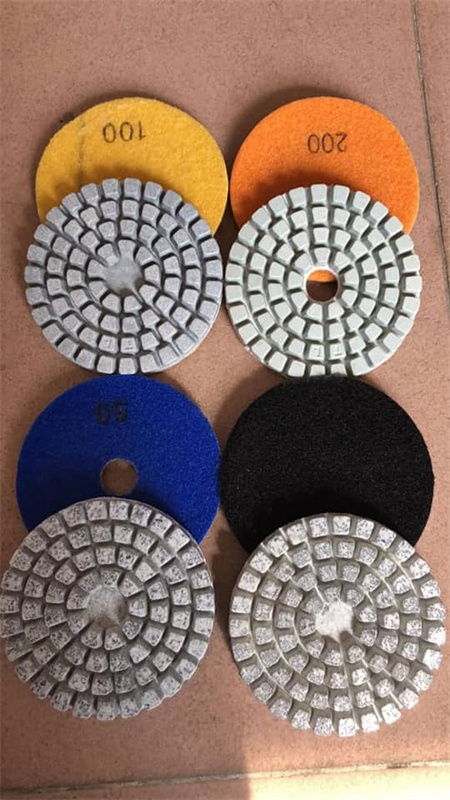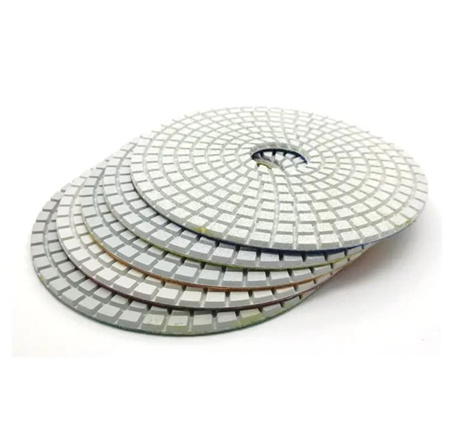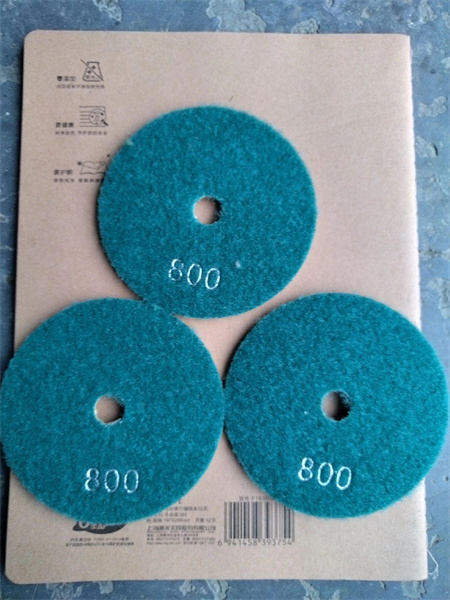Eco-Friendly Bonding Agents in Polishing Pads: A Greener Approach to Surface Finishing
In an age where sustainability is at the forefront of industrial innovation, eco-friendly solutions are gradually transforming industries. The polishing and surface finishing sector is no exception. Among the latest advancements, eco-friendly bonding agents in polishing pads are making waves. These agents are part of a growing movement to reduce environmental impact without compromising on performance. Let’s dive into why these eco-friendly bonding agents are becoming a game-changer in the world of polishing pads and surface treatments.
Polishing pads are crucial tools used across a variety of industries—from automotive and aerospace to marble, glass, and electronics manufacturing. They help in smoothing, buffing, and enhancing the surface quality of materials. Traditionally, these pads rely on synthetic bonding agents that can be harmful to the environment, releasing toxic chemicals during production and disposal. However, with increasing pressure to adopt more sustainable practices, manufacturers are turning towards green alternatives that offer similar or even superior performance while minimizing environmental harm.
Eco-friendly bonding agents are typically made from natural, biodegradable, or recycled materials. Unlike conventional chemical-based agents, these green alternatives use plant-based compounds, water-based resins, or renewable polymers. The shift to these more sustainable ingredients is driven by growing concerns over the carbon footprint of industrial processes and the long-term environmental damage caused by non-biodegradable substances.
One of the most notable advantages of eco-friendly bonding agents is their reduced toxicity. Traditional synthetic bonding agents often contain harmful solvents, plastics, or heavy metals that pose a threat to both human health and the environment. When used in polishing pads, these substances can off-gas toxic fumes during the polishing process, and once the pads are discarded, they contribute to landfill waste that takes years, if not decades, to decompose. In contrast, eco-friendly bonding agents break down naturally, causing far less pollution. As a result, they are safer for both workers handling the pads and the ecosystems affected by waste disposal.
The performance of polishing pads is crucial for the industries that rely on them, and many might question whether eco-friendly bonding agents can deliver the same level of efficiency and durability as their conventional counterparts. The good news is that the answer is increasingly yes. Research and development in sustainable materials have made significant strides, ensuring that eco-friendly bonding agents can match, and in some cases surpass, traditional bonding agents in terms of effectiveness. These green bonding agents are engineered to provide excellent grip, longevity, and surface finish quality—key attributes needed for high-performance polishing pads.
Another advantage of eco-friendly bonding agents is their reduced environmental footprint during production. The process of manufacturing these green materials generally consumes less energy and generates fewer pollutants compared to the production of traditional bonding agents. For instance, water-based resins have become a popular choice in the creation of eco-friendly polishing pads. They are not only safer to produce but also leave behind fewer volatile organic compounds (VOCs), which are known contributors to air pollution and smog. Moreover, because these materials are derived from renewable sources, they contribute to a circular economy, reducing the demand for fossil fuels and non-renewable resources.
In addition to their environmental benefits, eco-friendly bonding agents align with increasing consumer and regulatory demands for greener products. Industries are under growing pressure to comply with stricter environmental regulations and certifications, such as ISO 14001, which require the adoption of more sustainable practices. By incorporating eco-friendly bonding agents into polishing pads, companies can demonstrate their commitment to sustainability, attracting eco-conscious consumers and improving their overall brand reputation.

As industries continue to move toward sustainable manufacturing practices, the role of eco-friendly bonding agents in polishing pads is becoming more prominent. These greener alternatives represent a shift in how we think about performance and sustainability in the industrial sector. By embracing these innovative materials, manufacturers can significantly reduce their environmental impact, improve worker safety, and provide their customers with high-quality, eco-conscious products.

